Hello, social media warriors! Let’s talk about the dark side of the internet: hackers and your precious Facebook account. These digital bandits are always on the prowl, and security breaches are sadly common. But fear not; we are here to expose their sneaky tactics and help you build an impenetrable Facebook fortress.
So, how do these cyber-crooks infiltrate your account? They’re like master thieves, using various tricks to steal your digital keys.
Contents
- 1 1) Beware of clickbait video links on Facebook, even from friends!
- 2 2) The Meta Masquerade: These tricksters love playing dress-up as Facebook or Meta.
- 3 3) Phishing Phantoms: These ghostly figures haunt Facebook with deceitful emails and fake login pages. Their goal? To steal your Facebook!
- 4 4) Text Message Trap: The Unexpected Vulnerability You Didn’t Know Existed
1) Beware of clickbait video links on Facebook, even from friends!
Clicking them can infect your device with malware, giving hackers access to your information. These scams lure you in with curiosity (“Is this you?”) but deliver malware instead – a digital thief that steals your precious data.
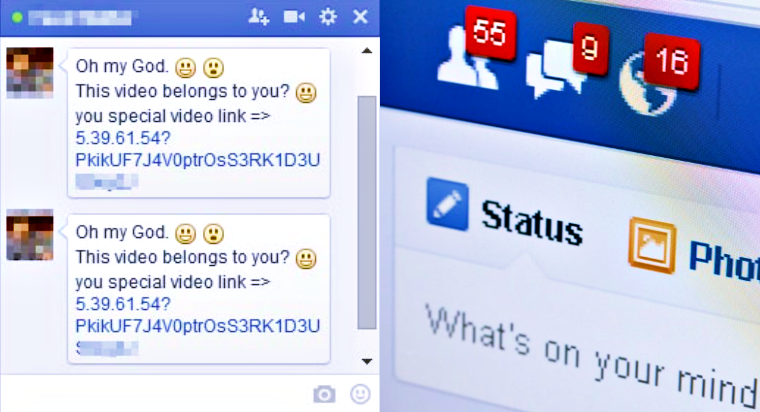
2) The Meta Masquerade: These tricksters love playing dress-up as Facebook or Meta.
They send notifications or messages claiming your account needs verification or faces imminent banning. Please don’t fall for their scare tactics! Facebook will never ask for sensitive information like passwords through messages or notifications.
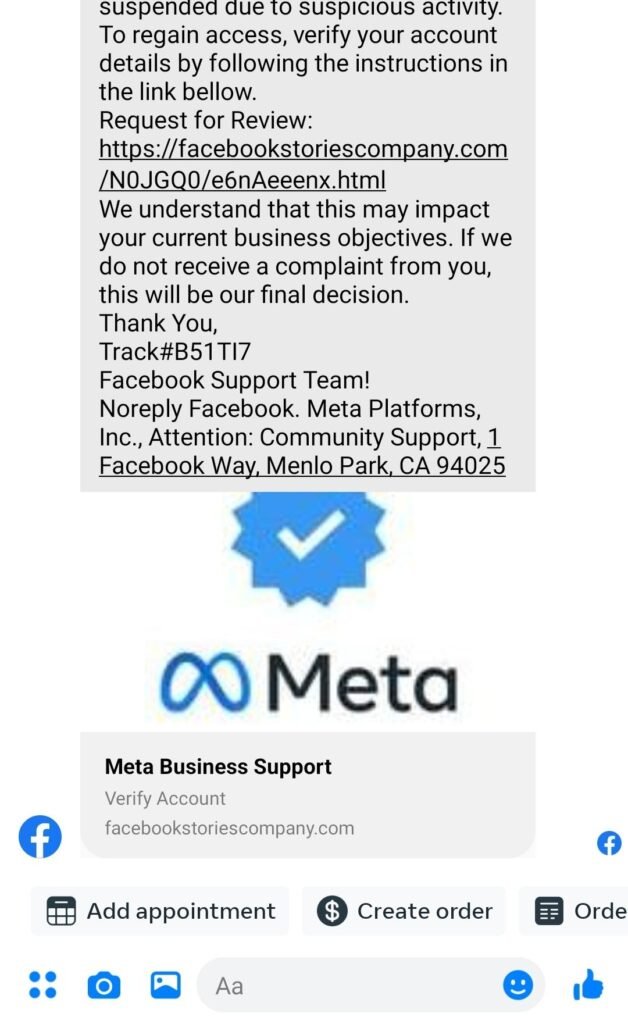
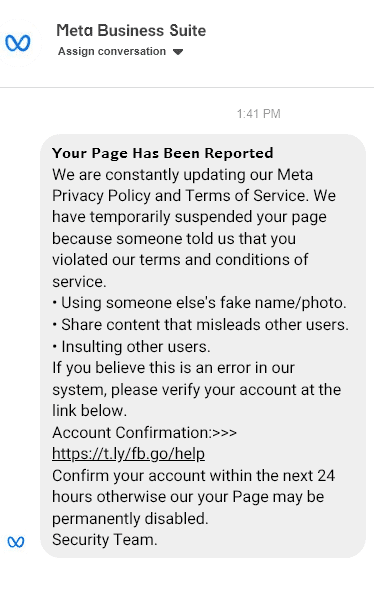
The image you receive might appear as a notification from Facebook, but it is actually a fake notification designed to trick you into clicking on a malicious link. If you click on the link, you will be taken to a fake website that looks like Facebook, controlled by scammers. Once you enter your personal information on the fake website, the scammers can steal it.
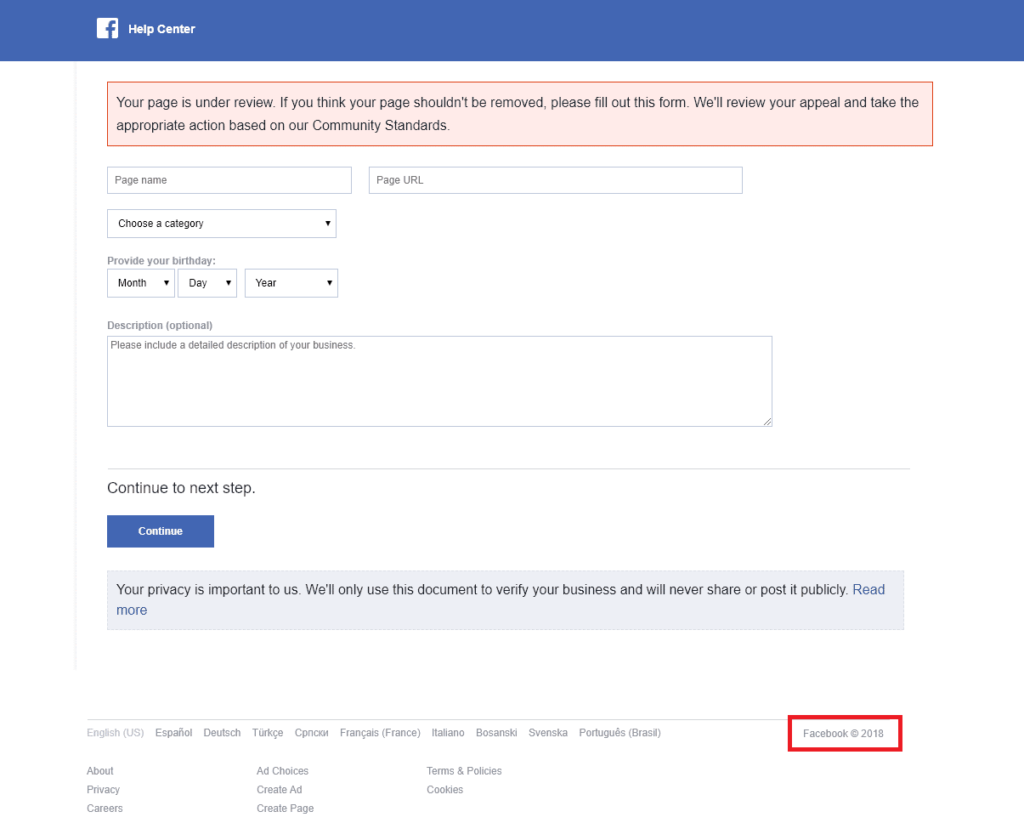
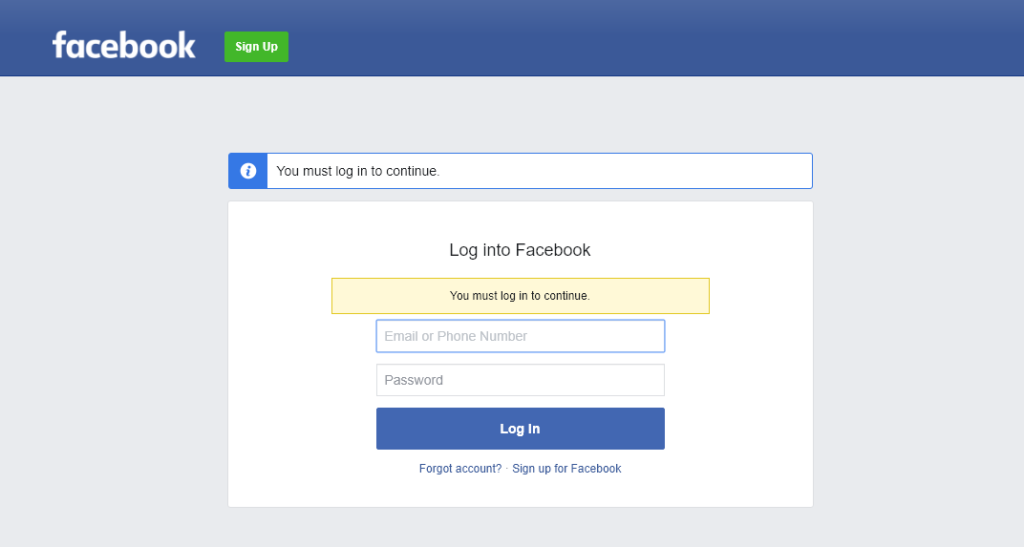
Look how the form is designed to trick you into entering your data. Please note that the solution is very simple. You need to hover around where you enter your Facebook domain, or in the case of using your phone, you don’t need to worry.
3) Phishing Phantoms: These ghostly figures haunt Facebook with deceitful emails and fake login pages. Their goal? To steal your Facebook!
The Phishing Phantoms: These web pages are disguised as legitimate Facebook logins, tricking you into entering your username and password. But they’re just traps, sending your data straight to the hackers. Double-check the URL before logging in, and never enter your credentials on suspicious websites.

Professional hackers can craft emails that appear to be from Facebook itself. They might offer free gifts, claim your account is at risk, or even threaten suspension. But their words are mere illusions, designed to lure you into their trap.
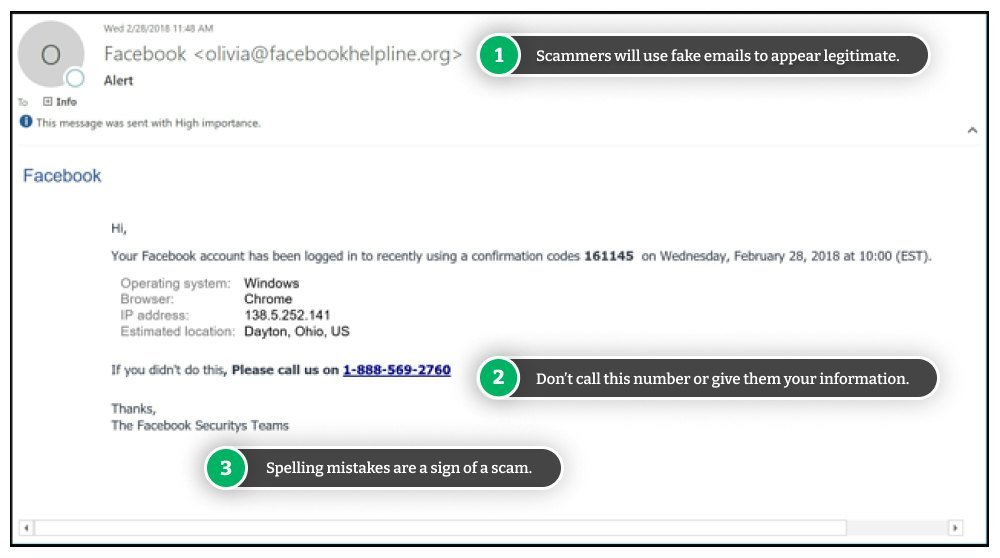
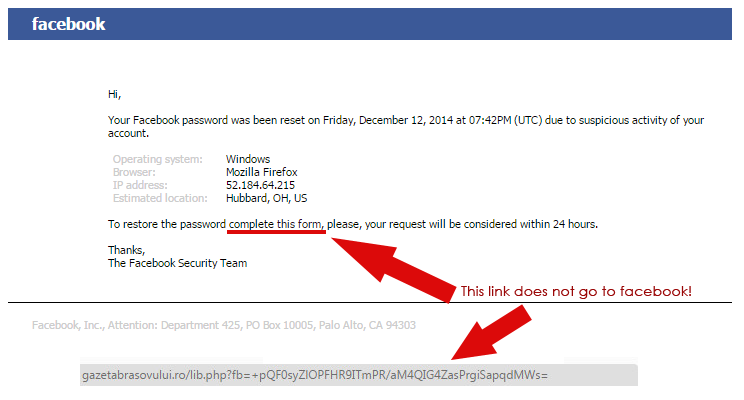
Unmask their disguise: Their most chilling trick is the fake Facebook login page. It might look eerily familiar, with the blue logo and familiar layout. But beware! One wrong click and your username and password vanish into the Phantoms’ shadowy realm. However, there are several trusted email addresses that affiliate with Meta, which you can check in the following image.

Note: if an email or Facebook message looks strange, don’t open it or any attachments. Instead, report it to phish@fb.com or through the report links that appear throughout Facebook. Remember, hackers are cunning and constantly evolving their tactics. But by knowing their tricks, you can be one step ahead.
4) Text Message Trap: The Unexpected Vulnerability You Didn’t Know Existed
While we’ve exposed common hacker tricks like clickbait and phishing, cyber-criminals can still lurk in unexpected places. One such hidden threat is text messages. While rare, hackers can exploit vulnerabilities to access your data through seemingly harmless texts. But stay calm, digital warriors! Knowing this sneaky tactic empowers you to remain vigilant and better protect your accounts. For instance, a UK security researcher who goes by the name “fin1te” managed to expose a significant vulnerability, earning him upward of $20,000 using a very simple technique to hack into anyone’s Facebook account.
Imagine hacking any Facebook account with just a text message! That’s exactly what UK security researcher “fin1te” achieved in 2013. He exposed this major vulnerability, earning a $20,000 reward for his responsible disclosure.
Cluely, G. (2013) ‘How to hack any Facebook account in under a minute, by sending just one SMS.’ Cybersecurity keynote speaker, news and opinion. Available at: https://grahamcluley.com/hack-facebook-sms/ (Accessed: 20 12 2023).
This should – obviously – have been impossible. Still, due to a weakness in Facebook’s tangled nest of millions and millions of lines in code, hundreds of millions of accounts were potentially vulnerable to hijacking through the simple technique. If you wish to learn more, click here. This technique should not work anymore, so do not try it on your friends!




